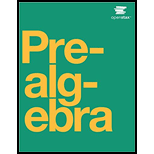
Mathematics For Machine Technology
8th Edition
ISBN: 9781337798310
Author: Peterson, John.
Publisher: Cengage Learning,
expand_more
expand_more
format_list_bulleted
Concept explainers
Textbook Question
Chapter 41, Problem 71A
Subtract the following expressions as indicated.
Expert Solution & Answer
Want to see the full answer?
Check out a sample textbook solution
Students have asked these similar questions
Use the method of undetermined coefficients to solve the given nonhomogeneous system.X' =
−1 33 −1
X +
−4t2t + 2
X(t) =
Detailed report without CHATGPT, accept if you can give with code and plots, previous reported . Do not waste my question.
Please do not give inappropriate solutions, previous question reported, i need correct report solution for this, NO CHATGPT
Chapter 41 Solutions
Mathematics For Machine Technology
Ch. 41 - Prob. 1ACh. 41 - Prob. 2ACh. 41 - Use the Table of Block Thicknesses for a Customary...Ch. 41 - Read the setting of the metric vernier micrometer...Ch. 41 - Read the decimal-inch measurement on the vernier...Ch. 41 - Prob. 6ACh. 41 - Add the terms in the following expressions. 18y+yCh. 41 - Add the terms in the following expressions....Ch. 41 - Add the terms in the following expressions....Ch. 41 - Add the terms in the following expressions....
Ch. 41 - Add the terms in the following expressions....Ch. 41 - Add the terms in the following expressions. 4c3+0Ch. 41 - Add the terms in the following expressions....Ch. 41 - Add the terms in the following expressions....Ch. 41 - Add the terms in the following expressions....Ch. 41 - Add the terms in the following expressions....Ch. 41 - Add the terms in the following expressions....Ch. 41 - Add the terms in the following expressions....Ch. 41 - Add the terms in the following expressions....Ch. 41 - Add the terms in the following expressions....Ch. 41 - Add the terms in the following expressions....Ch. 41 - Add the terms in the following expressions....Ch. 41 - Add the terms in the following expressions. 5p+2p2Ch. 41 - Add the terms in the following expressions. a3+2a2Ch. 41 - Add the terms in the following expressions....Ch. 41 - Add the terms in the following expressions....Ch. 41 - Add the terms in the following expressions....Ch. 41 - Add the terms in the following expressions....Ch. 41 - Add the terms in the following expressions....Ch. 41 - Add the terms in the following expressions....Ch. 41 - Add the terms in the following expressions....Ch. 41 - Add the terms in the following expressions....Ch. 41 - Add the terms in the following expressions....Ch. 41 - Add the terms in the following expressions....Ch. 41 - The machined plate distances shown in Figure 41-3...Ch. 41 - Add the following expressions. 5x+7xy8y9x12xy+13yCh. 41 - Add the following expressions. 3a11d8ma+11d3mCh. 41 - Add the following expressions....Ch. 41 - Add the following expressions....Ch. 41 - Add the following expressions....Ch. 41 - Add the following expressions....Ch. 41 - Add the following expressions....Ch. 41 - Add the following expressions....Ch. 41 - Add the following expressions....Ch. 41 - Add the following expressions....Ch. 41 - Subtract the following terms as indicated....Ch. 41 - Subtract the following terms as indicated. 3xyxyCh. 41 - Subtract the following terms as indicated. 3xyxyCh. 41 - Subtract the following terms as indicated. 3xy(xy)Ch. 41 - Subtract the following terms as indicated....Ch. 41 - Subtract the following terms as indicated....Ch. 41 - Subtract the following terms as indicated....Ch. 41 - Subtract the following terms as indicated....Ch. 41 - Prob. 54ACh. 41 - Subtract the following terms as indicated....Ch. 41 - Subtract the following terms as indicated. 13a9a2Ch. 41 - Subtract the following terms as indicated....Ch. 41 - Subtract the following terms as indicated....Ch. 41 - Subtract the following terms as indicated. ax2ax2Ch. 41 - Subtract the following terms as indicated....Ch. 41 - Subtract the following terms as indicated....Ch. 41 - Subtract the following terms as indicated. 213xCh. 41 - Subtract the following terms as indicated. 3x21Ch. 41 - Subtract the following terms as indicated....Ch. 41 - Subtract the following terms as indicated....Ch. 41 - Subtract the following expressions as indicated....Ch. 41 - Subtract the following expressions as indicated....Ch. 41 - Subtract the following expressions as indicated....Ch. 41 - Subtract the following expressions as indicated....Ch. 41 - Subtract the following expressions as indicated....Ch. 41 - Subtract the following expressions as indicated....Ch. 41 - Subtract the following expressions as indicated....Ch. 41 - Subtract the following expressions as indicated....Ch. 41 - Subtract the following expressions as indicated....Ch. 41 - Subtract the following expressions as indicated....Ch. 41 - Multiply the following terms as indicated....Ch. 41 - Multiply the following terms as indicated. (x)(x2)Ch. 41 - Multiply the following terms as indicated....Ch. 41 - Multiply the following terms as indicated....Ch. 41 - Multiply the following terms as indicated....Ch. 41 - Multiply the following terms as indicated....Ch. 41 - Multiply the following terms as indicated....Ch. 41 - Multiply the following terms as indicated....Ch. 41 - Multiply the following terms as indicated....Ch. 41 - Multiply the following terms as indicated....Ch. 41 - Multiply the following terms as indicated....Ch. 41 - Multiply the following terms as indicated....Ch. 41 - Multiply the following terms as indicated....Ch. 41 - Multiply the following terms as indicated....Ch. 41 - Multiply the following terms as indicated....Ch. 41 - Multiply the following terms as indicated....Ch. 41 - Multiply the following terms as indicated....Ch. 41 - Multiply the following terms as indicated....Ch. 41 - Multiply the following terms as indicated....Ch. 41 - Multiply the following terms as indicated....Ch. 41 - Multiply the following terms as indicated....Ch. 41 - Multiply the following expressions as indicated...Ch. 41 - Multiply the following expressions as indicated...Ch. 41 - Multiply the following expressions as indicated...Ch. 41 - Multiply the following expressions as indicated...Ch. 41 - Multiply the following expressions as indicated...Ch. 41 - Multiply the following expressions as indicated...Ch. 41 - Multiply the following expressions as indicated...Ch. 41 - Multiply the following expressions as indicated...Ch. 41 - Multiply the following expressions as indicated...Ch. 41 - Multiply the following expressions as indicated...
Knowledge Booster
Learn more about
Need a deep-dive on the concept behind this application? Look no further. Learn more about this topic, advanced-math and related others by exploring similar questions and additional content below.Similar questions
- Need detailed report without CHATGPT, accept if you can give with code and plots, previous reported Plots are required.arrow_forwardNeed detailed report without CHATGPT, accept if you can give with code and plots, previous reportedarrow_forward1. Which set of parametric equations is shown in the graph below? Explain your reasoning. a) x = t; y = t² b) x = = t²; y = t -3-2-1 5 4 3 2 1 12 3 2. Using the graph of f, a. determine whether dy/dt is positive or negative given that dx/dt is negative and b. determine whether dx/dt is positive or negative given that dy/dt is positive. Explain your reasoning. 2 f x 1 2 3 4arrow_forward
- Find the perimeter of the triangle. Express the perimeter using the same unit of measure that appears on the given sides. 9 ft 13 ft 6 ft The perimeter isarrow_forwardUse the formula for Pr to evaluate the following expression. 9P5 9P5 =☐arrow_forwardFind the volume of the figure. The volume of the figure is 3 m 3 m 3 marrow_forward
- Find the circumference and area of the circle. Express answers in terms of and then round to the nearest tenth. Find the circumference in terms of C= (Type an exact answer in terms of x.) Find the circumference rounded to the nearest tenth. C= Find the area in terms of A= (Type an exact answer in terms of x.) Find the area rounded to the nearest tenth. A= 10 cmarrow_forwardIn Exercises 62-64, sketch a reasonable graph that models the given situation. The number of hours of daylight per day in your hometown over a two-year period The motion of a diving board vibrating 10 inches in each direction per second just after someone has dived off The distance of a rotating beam of light from a point on a wallarrow_forwardThe manager of a fleet of automobiles is testing two brands of radial tires and assigns one tire of each brand at random to the two rear wheels of eight cars and runs the cars until the tires wear out. The data (in kilometers) follow. CAR BRAND1 BRAND2 DIFFERENCE = (BRAND1 - BF 1 36,925 33,018 3,907 2 45,300 43,280 2,020 3 36,240 35,500 740 4 32,100 31,200 900 5 37,210 37,015 195 6 48,360 46,800 1,560 7 38,200 37,810 390 8 33,500 33,215 285arrow_forward
- Diabetes and obesity are serious health concerns in the United States and much of the developed world. Measuring the amount of body fat a person carries is one way to monitor weight control progress, but measuring it accurately involves either expensive X-ray equipment or a pool in which to dunk the subject. Instead body mass index (BMI) is often used as a proxy for body fat because it is easy to measure: BMI = mass(kg)/(height(m))² = 703 mass(lb)/(height(in))². In a study of 15 men at TXST, both BMI and body fat were measured. Researchers imported the data into statistical software for analysis. A few values are missing from the output. Complete the table by filling in the missing values. Model Summary S R-sq % (three decimal places) (two decimal places. e.g. 12.3456%, enter 12.35) Analysis of Variance Source Model Error Total DF SS MS F P 17.600 0.001 DF: whole numbers SS or MS; three decimal places 34.810 Does a simple linear regression model seem reasonable in this situation?…arrow_forwardThe use of electromyostimulation (EMS) as a method to train healthy skeletal muscle is studied. EMS sessions consisted of 30 contractions (4-second duration, 85 Hz) and were carried out three times per week for three weeks on 17 ice hockey players. The 10-meter skating performance test showed a standard deviation of 0.90 seconds. Is there strong evidence to conclude that the standard deviation of performance time exceeds the historical value of 0.75 seconds? Use a = 0.05.arrow_forwardOne-Sample Z Test Test of М = 45 vs not === 45 The assumed standard deviation = 2.8 VARIABLE N MEAN STDEV SE MEAN X Instructions: 46.377 2.500 0.626 95% CI (,) Fill in the missing values. N: Round the answer to the nearest whole number. Cl: Round to three decimal places. Z: Round to two decimal places. P: Round to three decimal places.arrow_forward
arrow_back_ios
SEE MORE QUESTIONS
arrow_forward_ios
Recommended textbooks for you
 Holt Mcdougal Larson Pre-algebra: Student Edition...AlgebraISBN:9780547587776Author:HOLT MCDOUGALPublisher:HOLT MCDOUGAL
Holt Mcdougal Larson Pre-algebra: Student Edition...AlgebraISBN:9780547587776Author:HOLT MCDOUGALPublisher:HOLT MCDOUGAL Mathematics For Machine TechnologyAdvanced MathISBN:9781337798310Author:Peterson, John.Publisher:Cengage Learning,
Mathematics For Machine TechnologyAdvanced MathISBN:9781337798310Author:Peterson, John.Publisher:Cengage Learning, Elementary AlgebraAlgebraISBN:9780998625713Author:Lynn Marecek, MaryAnne Anthony-SmithPublisher:OpenStax - Rice University
Elementary AlgebraAlgebraISBN:9780998625713Author:Lynn Marecek, MaryAnne Anthony-SmithPublisher:OpenStax - Rice University Algebra: Structure And Method, Book 1AlgebraISBN:9780395977224Author:Richard G. Brown, Mary P. Dolciani, Robert H. Sorgenfrey, William L. ColePublisher:McDougal Littell
Algebra: Structure And Method, Book 1AlgebraISBN:9780395977224Author:Richard G. Brown, Mary P. Dolciani, Robert H. Sorgenfrey, William L. ColePublisher:McDougal Littell Glencoe Algebra 1, Student Edition, 9780079039897...AlgebraISBN:9780079039897Author:CarterPublisher:McGraw Hill
Glencoe Algebra 1, Student Edition, 9780079039897...AlgebraISBN:9780079039897Author:CarterPublisher:McGraw Hill

Holt Mcdougal Larson Pre-algebra: Student Edition...
Algebra
ISBN:9780547587776
Author:HOLT MCDOUGAL
Publisher:HOLT MCDOUGAL

Mathematics For Machine Technology
Advanced Math
ISBN:9781337798310
Author:Peterson, John.
Publisher:Cengage Learning,

Elementary Algebra
Algebra
ISBN:9780998625713
Author:Lynn Marecek, MaryAnne Anthony-Smith
Publisher:OpenStax - Rice University

Algebra: Structure And Method, Book 1
Algebra
ISBN:9780395977224
Author:Richard G. Brown, Mary P. Dolciani, Robert H. Sorgenfrey, William L. Cole
Publisher:McDougal Littell

Glencoe Algebra 1, Student Edition, 9780079039897...
Algebra
ISBN:9780079039897
Author:Carter
Publisher:McGraw Hill

ALGEBRAIC EXPRESSIONS & EQUATIONS | GRADE 6; Author: SheenaDoria;https://www.youtube.com/watch?v=fUOdon3y1hU;License: Standard YouTube License, CC-BY
Algebraic Expression And Manipulation For O Level; Author: Maths Solution;https://www.youtube.com/watch?v=MhTyodgnzNM;License: Standard YouTube License, CC-BY
Algebra for Beginners | Basics of Algebra; Author: Geek's Lesson;https://www.youtube.com/watch?v=PVoTRu3p6ug;License: Standard YouTube License, CC-BY
Introduction to Algebra | Algebra for Beginners | Math | LetsTute; Author: Let'stute;https://www.youtube.com/watch?v=VqfeXMinM0U;License: Standard YouTube License, CC-BY